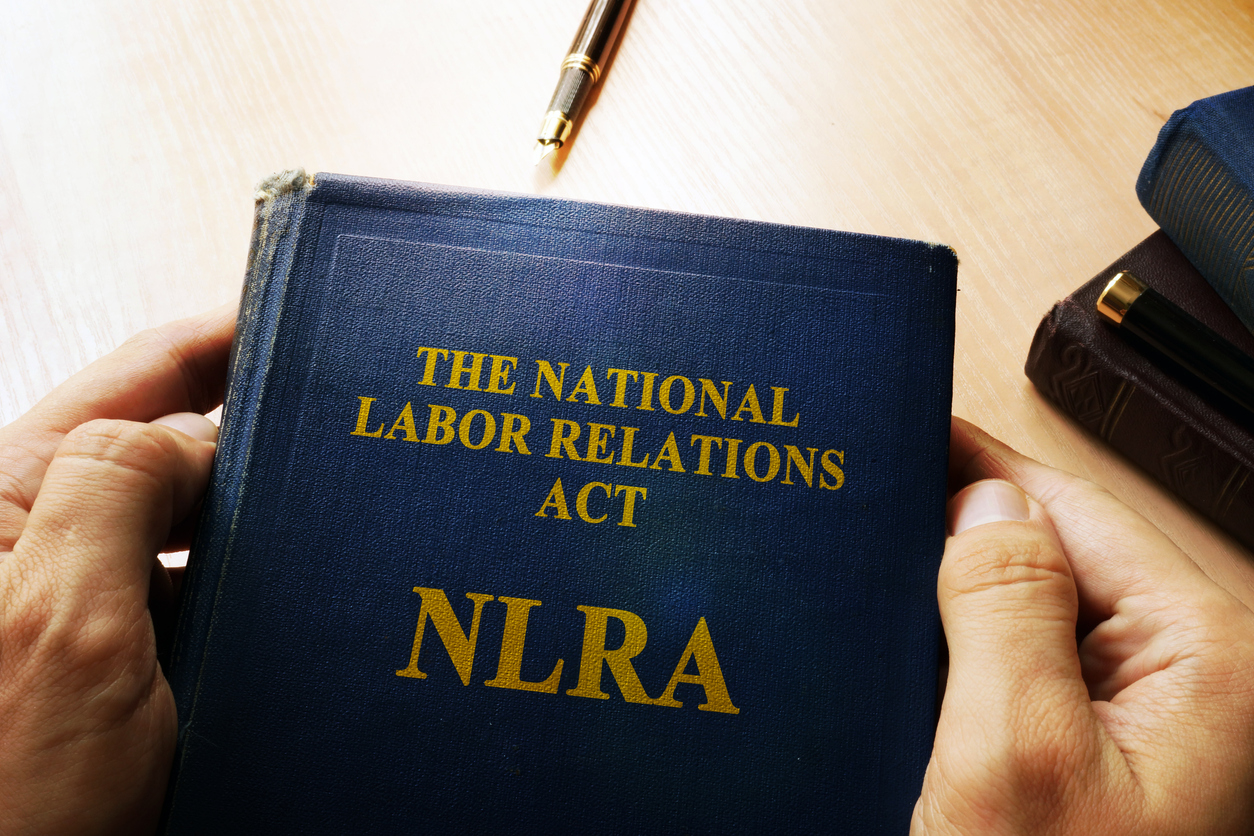The National Labor Relations Board has just changed how you do employee relations.
Okay, that’s probably a bit of a shock to you if you’re a non-union organization, because you generally think of the NLRB as focusing on union stuff and basic things like, your employees’ right to discuss their salaries (and other working conditions).
Side note: I know there are some of you reading this that have policies that prohibit employees from sharing their salaries. If you feel you need this policy, then you need to adjust your compensation so that it is fair. No one worries about employees discussing wages when the salaries are fair.
But, the NLRB has recently made two massive changes that can affect how you interact with employees. The first is a new joint-employer standard (hold on, I’ll explain), and the other deals with confidentiality in investigations. Let’s go through both.
Joint Employer Standard Under New NLRB Regulations
The new Joint Employer Standard goes into effect when you share employment responsibilities with another organization. The new ruling, which goes into effect on April 27, 2020, came out in a 54-page document that made my eyes bleed.
Fortunately, that’s why we have lawyers. Employment attorneys Jon Hyman and Eric Meyer read through it and gave us the critical information.
First, franchises aren’t likely to be considered joint employers unless they “possess and exercise such substantial direct and immediate control over one or more essential terms and conditions of employment of another employer’s employees.”
So, if you’re a franchiser or a franchisee, you can breathe a sigh of relief. McDonald’s has been battling this for years, and I’m sure they are thrilled.
But, if you have a union, or use contractors, temps, or subcontractors, here’s where employee relations become essential. You can’t ignore what’s going on with your subcontractors, as you’re a joint employer. Because you generally control “wages, benefits, hours of work, hiring, discharge, discipline, supervision, and direction” of these employees, you’ll be responsible.
So, make sure your joint-employer duties include things like sexual harassment training, investigating problems, and making sure they have a harassment-free work environment and fair pay.
You would do this anyway, of course, but now it directly falls on your shoulders, and you can’t just kick everything to the agency. If you’re directing work, you’re a joint employer.
Confidentiality and Workplace Investigations
The NLRB allowed you to tell people to keep investigations confidential, and then they flipped it to say you couldn’t, and now, the most recent ruling is back to confidentiality! Whew! Employee relations whiplash!
The new NLRB standards say that you can maintain confidentiality as long as it’s facially neutral. They recognize that requiring employees not to discuss an ongoing investigation does have an impact on the time-tested right to discuss working conditions. However, it’s only a small inconvenience, and I might add, temporary, as eventually, every investigation ends (although the NLRB notes there may be some times when it’s crucial to continue confidentiality).
Learn how to consider the employee experience during the investigation process.
This should make the investigation process more straightforward, as (theoretically) everyone you talk to is not influenced by the last person in your office. But, you need to make sure you’re not influenced by the people in your office as well, and your own biases (conscious and unconscious).
That means standard practices and protocols that you follow strictly. Every group — age, race, gender, disability, etc. — needs to receive the same consideration. You may find yourself in court, and having this information documented carefully will be critical to your success.
Be prepared to protect employees who are subjected to these common types of workplace harassment.
One of the critical things that your employees want is to feel like the company takes their complaints and concerns seriously. This usually means they want to know about a resolution. So, keep the instances where you require them to maintain confidentiality few and far between, and done strictly according to protocol. Remember, your goal is a fair, equitable and legal system.
With these significant NLRB changes, lots of companies have lots to do to ensure compliance. Make sure your business is on top of it.



